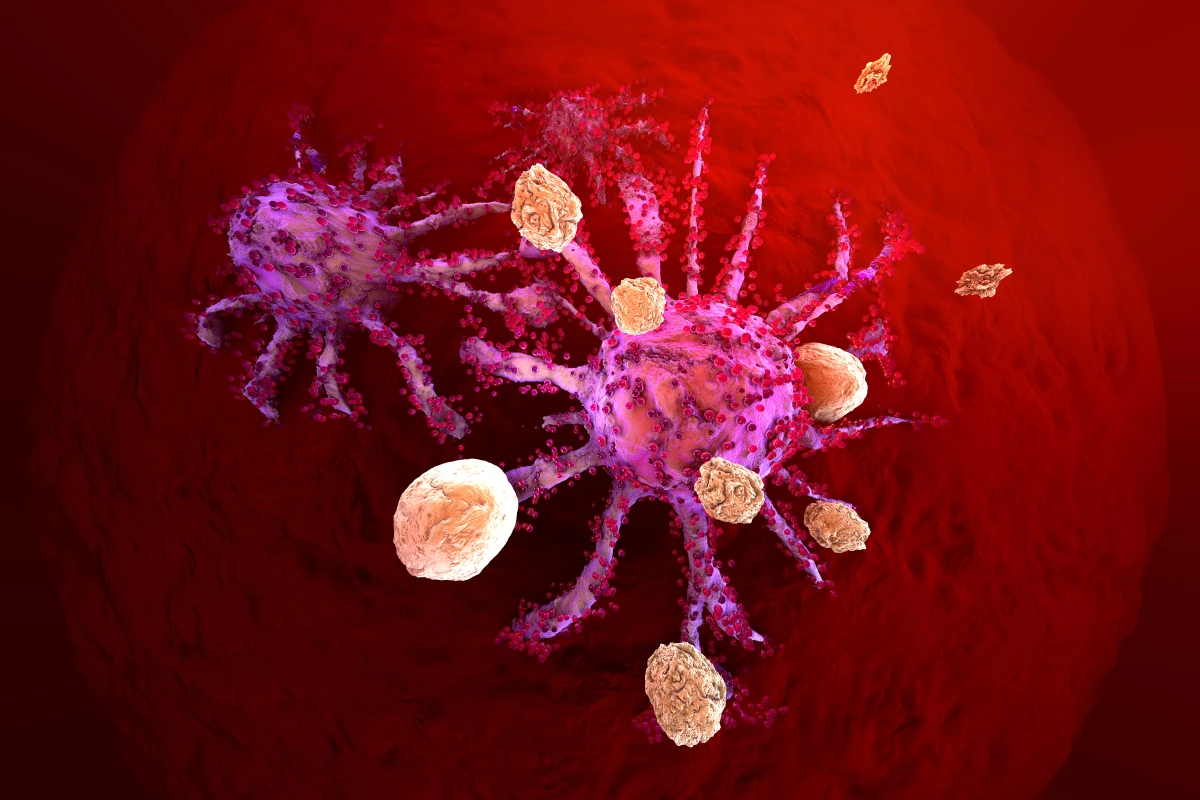Harnessing the immune system to fight cancer is an ever-evolving area of medical science, but among the most stubborn and least responsive to immunology therapies is metastatic breast cancer.
Now, scientists have found a way to treat the areas surrounding breast cancer tumors that have spread to the bone, making these secondary tumors vulnerable to attack by the immune system.
Common immunotherapies – immune checkpoint inhibitors – ramp up T-cell activity to attack cancer. But researchers from Washington University School of Medicine in St. Louis (WUSTL) instead used a two-part approach to supercharge cancer-fighting immune system cells.
“After breast cancer has spread to other parts of the body, it becomes extraordinarily difficult to treat; current therapies can only try to slow it down,” said senior author Sheila A. Stewart, professor of Cell Biology & Physiology at WUSTL. “About 70% of patients with metastatic breast cancer have tumors that have spread to their bones.
“Our study suggests we may be able to use two treatments – one to sensitize the myeloid tumor microenvironment to immunotherapy, and one to activate T cells – to target these bone metastases in a way that eliminates the tumor, prevents the cancer from returning and protects against bone loss in the process.”
In their study on mice, the team found that blocking the p38MAPK molecule reprogrammed the tumor area to be more vulnerable to attack by immune cells – T cells and macrophages – and signaling molecules called anti-tumor cytokines. Then, using an OX40 agonist therapy, which binds and activates T cells, the shrunken tumor was eliminated.
A cancer-fighting dream team emerged by boosting the activity of T cells and macrophages. It also enabled long-term immunologic memory, as macrophages continued to show the T cells recognizable fragments of dead tumor cells called cancer antigens, ensuring the T cells quickly attacked and killed any new growths.
Encouragingly, all the mice that received the double therapy were alive and tumor-free 80 days after treatment. Those that received just one of these two therapies, had a 50% survival rate after 60 days.
“If we targeted the microenvironment to make it more sensitive to T cells and simultaneously hit the gas on the T cells, all of the mice were cleared of the metastatic tumors,” Stewart said. “If we came back after two weeks and challenged the mice again with the same tumor cells, their immune systems could clear those cells as well. It appears that their immune systems developed long-term memory and knew to attack those returning cancer cells. The mice look like they’re basically vaccinated against the cancer.”
Right now, three types of OX40 agonists in phase 2 clinical trials for cancer treatment, including breast cancer. Scientists are investigating p38MAPK inhibitors in trials for rheumatoid arthritis and chronic obstructive pulmonary disease.
“We are hopeful that our study will interest companies that make these drugs, so that we can work toward developing a clinical trial that could investigate this strategy in patients,” Stewart said.
The study was published in the journal Cancer Discovery.
Source: Washington University School of Medicine in St. Louis





